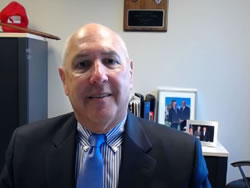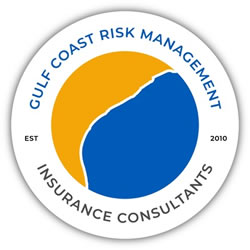Jess Birken, MNM, Esq.
 | Jess is the owner of Birken Law Office PLLC, a boutique law firm serving nonprofits and charitable entities with their compliance and operational issues. Jess empowers nonprofits to achieve their mission by doing things right. She connects clients with the right tools, right coaching and right contacts. Ms. Birken is a nationally recognized attorney both for her service and understanding of the nonprofit & charitable sector as well as for her innovative subscription based law firm model. Listen to Jess' podcast Charity Therapy on your favorite podcast player. |
Credentials
- BA, Sociology, University of Minnesota, Twin Cities
- JD, Mitchell Hamline School of Law, Magna Cum Laude
- MA, Nonprofit Management, Hamline University School of Business
- For additional information view LinkedIn
Litigation Support
Ideal client engagements are with attorneys for either plaintiff or defendant representing nonprofits involved in complex nonprofit business or compliance cases.
- Entity Formation, Articles of Incorporation
- Nonprofit Sector Best Practices
- Bylaws Interpretation
- Fiduciary Duties
- Private Benefit / Private Inurement / Insider Dealing
| - Voting Member Rights
- Board Disputes / Community Disputes
- Government Grant Compliance
- Nonprofit Policy Norms
- Conflicts of Interest Management
|
Biography
Ms. Birken is the former CEO & Managing Partner at Urban Birken PLLC, a boutique firm that focused on serving the nonprofit community and started her own firm in 2016. Jess has extensive non-legal experience working inside nonprofit organizations for most of her career prior to law school as well as after attaining her masters.
Before becoming a private practice attorney, Ms. Birken served inside a mid-sized national nonprofit organization, Pheasants Forever. In that role she managed ~$50,000,000 in state and federal government grants and worked on hundreds of conservation real estate transactions. Jess is deeply experienced in the reality of federal grants management across the entire life cycle. Ms. Birken has a deep understanding of the norms and best practices of the nonprofit sector, as well as the legal and regulatory environment these organizations exist within. This expertise was developed through her academic work obtaining a Masters in Nonprofit Management, in the work environment and through private practice experience.
Birken Law Video Introduction
Contact Information
You can contact Ms. Birken via e-mail or follow her on Twitter or Facebook.
Click here to schedule a free call now.
By: Jess Birken, Esq
Sometimes I work with nonprofits that are considering merging with one (or more!) other nonprofit groups. Mergers can be a happy thing, but they can also come out of one organization being stressed to the point of needing support. Sometimes it's necessary and very emotional.
By: Jess Birken, Esq
If you’ve spent any time on your TikTok For You page or YouTube Recommendations page, you may have run across some videos about how to shut down the Heritage Foundation via the IRS. Not sure what I’m talking about? Here’s the rundown:
By: Jess Birken, Esq
For most small nonprofits, the bylaws is a document that’s been sitting in a drawer gathering dust for 10 years. Or they’ve been revised 100 times to rearrange the same exact wording over and over again without making any important, substantial change.
By: Jess Birken, Esq
When starting a new nonprofit, most founders are focused on their mission. Who are they going to be? What kind of work will they do? What impact are they going to make? But those aren’t the only things nonprofit founders need to decide. They also need to decide on the structure of the nonprofit and how it will function, too.
By: Jess Birken, Esq
Here’s the thing: I wish my clients understood that a nonprofit's public charity status is NOT everything. It might be necessary and important, sure. It helps communicate to donors that the nonprofit is a public charity....But it’s certainly not the end-all, be-all of a successful nonprofit.
By: Jess Birken, Esq
Working with nonprofit organizations, I deal with a LOT of people problems. And it makes sense, right? When you ask a group of people passionate about a cause (aka, the board of directors) to come together to make collective decisions…disagreements and confrontations are inevitable.
By: Jess Birken, Esq
Feeding Our Future (FOF) was a Minnesota food assistance nonprofit that was awarded millions in federal grant funds in the past few years. FOF passed those funds through to other small organizations and businesses to provide food to children, primarily BIPOC and immigrant children in the Twin Cities and beyond.
By: Jess Birken, Esq
So, what does this have to do with nonprofits, you ask? Well, as a lawyer for nonprofits, I've seen lots of organizations go through the process of selecting new leaders – and not all of them do it right, especially when an insider is involved. This Jeopardy host situation reminded me of those cases.
By: Jess Birken, Esq
Dissolution can be a happy occasion (yay, we accomplished our mission!) or it can be very sad and emotional. But no matter what brings a nonprofit to that point, the decision to dissolve is a big one. And, to the surprise of some folks, that decision is just the very beginning of what can be a very long process
By: Jess Birken, Esq
As schools are called off for the rest of the year, toilet paper flies off the shelves, and shelter-in-place orders are announced, anxieties are high. Everyone is worried about money, jobs, health, how to stay sane in the coming weeks – or at least I'm pretty sure it's not just me! And then there's another layer of worry – the worry that comes with running a small nonprofit in the midst of an international crisis.
By: Jess Birken, Esq
Lately I've been noticing a lot of chatter on the internet about how you know which charities to donate to. There seems to be a general suspicion that nonprofits of all sizes who are seeking donations are swindling people out of their hard-earned money. Or at least that you can't trust these organizations and that it's easy to make the wrong decision.
By: Jess Birken, Esq
I work with a lot of nonprofit founders, and all of them have a certain kind of pride in their work. And they should! Lots of people have ideas, but there's not that many people out there who are willing to put their time, effort, knowledge, and money into it. We need entrepreneurial founders in the nonprofit sector.
By: Jess Birken, Esq
The reality is, starting and running a nonprofit is more than just the mission-driven work. Taking the time to understand the organizing documents, the Articles of Incorporation and the Bylaws, will help the organization going forward.
By: Jess Birken, Esq
Here's the secret to getting your nonprofit idea off the ground: knowing for sure that it should be a nonprofit in the first place.
Jessica Birken, MNM, Esq.
Request a copy of the eBook from Jessica Birken, MNM, Esq. Learn what you need to know before getting started with your nonprofit.

















 Mr. Beringer is the Principal of Beringer & Associates (B&A) and Liability Program Management (LPM). He is an approved consultant by the A.M. Best organization, since 2006, for claims, liability, and insurance program management, including matters involving construction, OCIP, TPA, JPA, Captives, Memorandum of Coverage, and insurance coverage analysis. The Cayman Island Monetary Authority approved Mr. Beringer as a licensed captive owner in 2002 for Segregated Portfolio Company Creative Solutions, SPC.
Mr. Beringer is the Principal of Beringer & Associates (B&A) and Liability Program Management (LPM). He is an approved consultant by the A.M. Best organization, since 2006, for claims, liability, and insurance program management, including matters involving construction, OCIP, TPA, JPA, Captives, Memorandum of Coverage, and insurance coverage analysis. The Cayman Island Monetary Authority approved Mr. Beringer as a licensed captive owner in 2002 for Segregated Portfolio Company Creative Solutions, SPC.
 Scott S. Margraves, CIC, has over 32 years of Commercial Property and Casualty Insurance experience. He is the Principal Consultant and Founder of Gulf Coast Risk Management, LLC (GCRM). GCRM provides research, analysis and advice to commerce, industry, government and individuals.
Scott S. Margraves, CIC, has over 32 years of Commercial Property and Casualty Insurance experience. He is the Principal Consultant and Founder of Gulf Coast Risk Management, LLC (GCRM). GCRM provides research, analysis and advice to commerce, industry, government and individuals.  Lezlee Liljenberg, CIC, CRIS, MLIS, PA, MA, entered the Insurance business in 2004 as she started her first agency from ground zero, growing the business to over $6 million in revenue in less than 12 years.
Lezlee Liljenberg, CIC, CRIS, MLIS, PA, MA, entered the Insurance business in 2004 as she started her first agency from ground zero, growing the business to over $6 million in revenue in less than 12 years.

